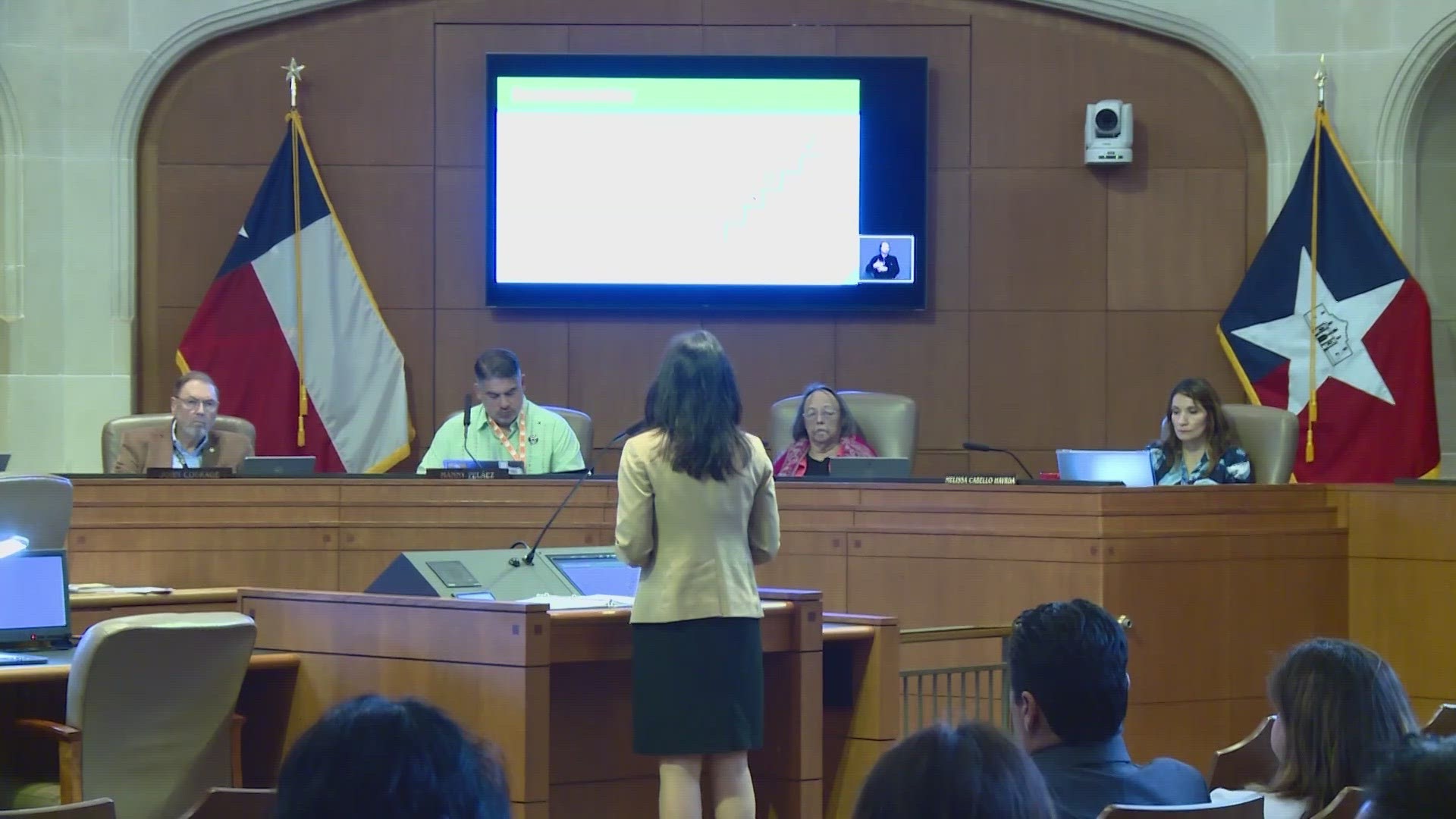SAN ANTONIO — After the deadly dog attack on Depla Street—the city has a new plan to address nuisance properties.
The west side home where two dogs killed an elderly man had 114 911 calls and 42 311 calls in almost three years.
Most of them were low-priority according to the city, but in aggregate, point to a greater problem.
The proposed Good Neighbor Program goes beyond dogs, but the Depla Street address is one of many like it in the city.
“Prior to those individuals [charged] moving in, the number of calls were much lower, as they moved in and as we talked to neighbors in that particular block they shared some of their challenges,” Maria Villagomez, Deputy City Manager says the city will review the data compiled from millions of 9-1-1 and 3-1-1 calls and will start by addressing the top 20 repeat properties in San Antonio.
According to city data—there are 20 addresses with a combined 3,193 calls.
47% of those calls were for patrol, 29% were for mental health, 13% for disturbances, and 11% included property crimes, animals, overdose, drugs and homelessness.
As an example, property one on the city’s west side would get anywhere between 1 to 28 calls in a single day. The property had 852 non-emergency calls in 3 months, and 831 asked for patrol by, welfare checks or were a 911 hang-up.
The goal is to determine what services are needed, whether its home repair, code enforcement or further intervention.
“The success of this program would be to get that neighbor into compliance and to be a good neighbor to the rest of the neighbors within that block,” Villagomez told council members the focus of the program will start with residential properties with up to 4 units, that had 12 or more calls for services over the most recent 90 days.
The city will review the calls initiated by neighbors or from within the house, the types of calls and determine intervention whether its connection to services or code enforcement.
Update’s on the program progress will be provided to the city’s Public Safety Committee. Documents state the Pilot Program will start by addressing those top 20 addresses by June 1, 2023.
Villagomez says a reduction in calls would be the best measure of improvements.

